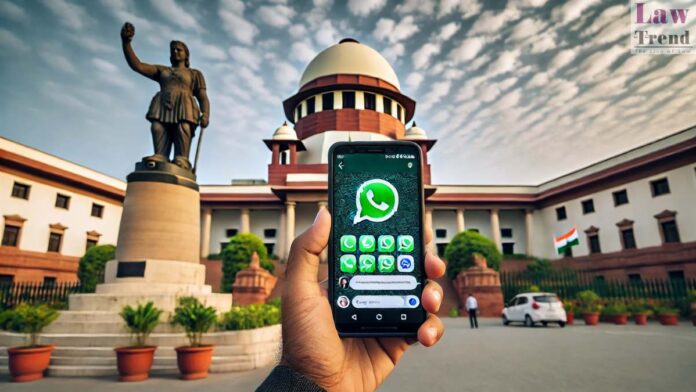The Supreme Court of India has ruled that a notice issued by a police officer under Section 35 of the Bharatiya Nagarik Suraksha Sanhita, 2023 (BNSS), which corresponds to Section 41A of the Code of Criminal Procedure, 1973, cannot be served through electronic means such as WhatsApp. A bench comprising Justice M. M. Sundresh and
To Read More Please Subscribe to VIP Membership for Unlimited Access to All the Articles, Download Available Copies of Judgments/Order, Acess to Central/State Bare Acts, Advertisement Free Content, Access to More than 4000 Legal Drafts( Readymade Editable Formats of Suits, Petitions, Writs, Legal Notices, Divorce Petitions, 138 Notices, Bail Applications etc.) in Hindi and English.




